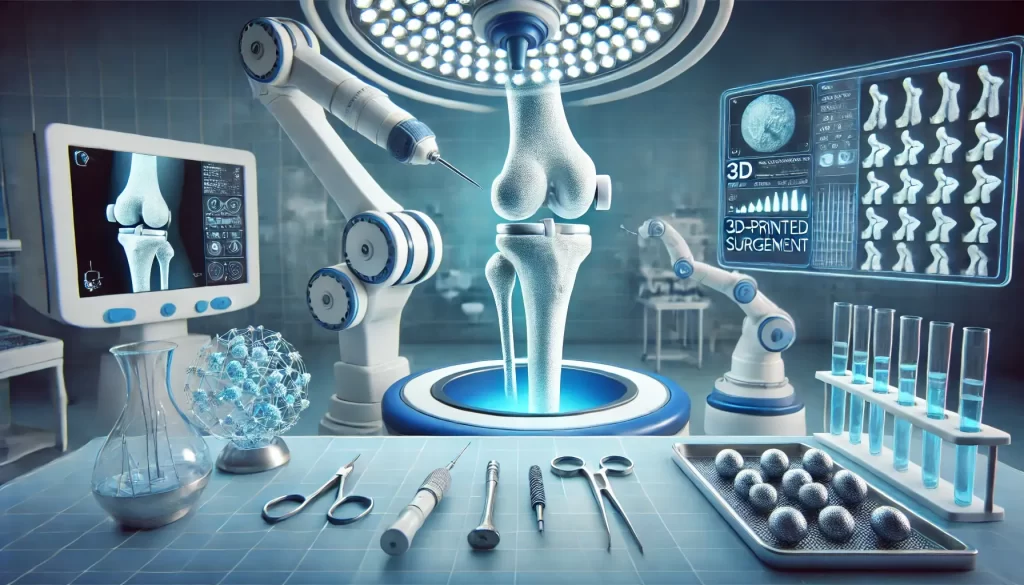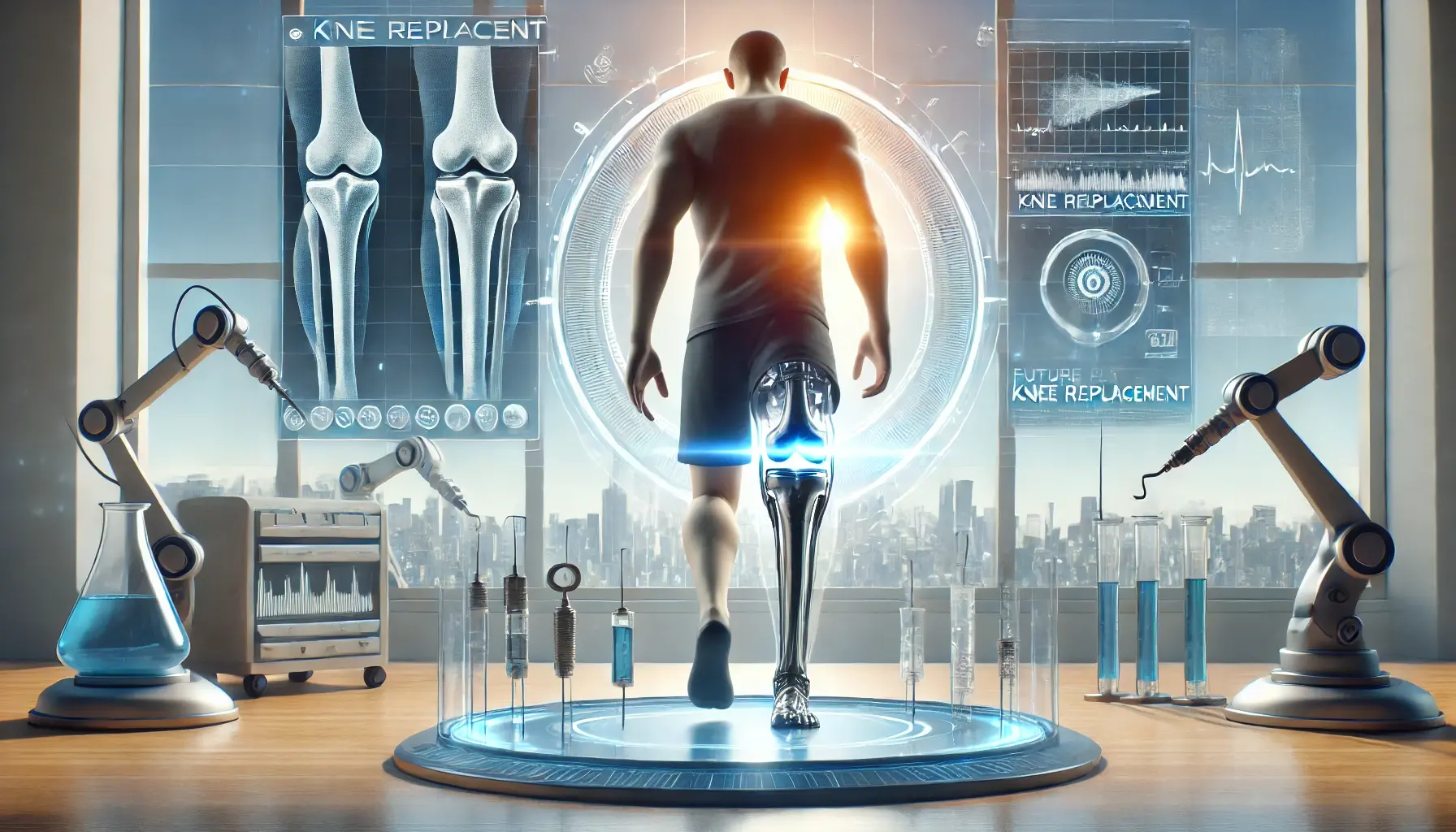Future Knee Replacement Technology: Unlocking Extraordinary Pain-Free Mobility
Table of Contents
The world of future knee replacement technology is evolving rapidly, promising a new era of pain-free mobility. With advances in medical science, those suffering from knee pain can look forward to innovative solutions that restore movement and enhance the quality of life. This article delves into the remarkable developments in knee replacement technology, exploring how these innovations will transform lives and pave the way for a future where knee pain becomes a thing of the past.
The Current State of Knee Replacement

Knee replacement surgeries have been a standard solution for individuals suffering from severe knee pain due to arthritis or injury. Traditional methods, while effective, often come with challenges such as long recovery times, limited mobility post-surgery, and the risk of complications. However, as we look to the future, the landscape of knee replacement is set to change dramatically.
Limitations of Traditional Knee Replacement
Traditional knee replacement procedures involve removing damaged cartilage and bone and replacing it with metal and plastic components. While this method has been successful, it has its drawbacks. Patients often experience pain during recovery, and the implants may not fully restore natural movement. Additionally, traditional knee replacements have a limited lifespan, requiring some patients to undergo revision surgeries.
Breakthroughs in Future Knee Replacement Technology

In recent years, researchers and medical professionals have been developing future knee replacement technology that addresses the limitations of traditional methods. These breakthroughs are designed to offer more personalized, efficient, and longer-lasting solutions for knee pain sufferers.
Personalized 3D-Printed Implants
One of the most exciting future knee replacement technology advancements is 3D printing to create personalized implants. Unlike traditional implants, which are one-size-fits-all, 3D-printed implants are custom-made to fit each patient’s unique anatomy. This ensures a better fit, improving comfort, more excellent range of motion, and a quicker recovery time. With the precision of 3D printing, surgeons can now provide patients with implants that mimic the natural movement of the knee joint.
Innovative Implants with Real-Time Monitoring
Another game-changing innovation in future knee replacement technology is the development of innovative implants. These implants are equipped with real-time sensors that monitor the knee’s movement and condition. This technology allows doctors to track the progress of the knee replacement, detect potential issues early, and make adjustments as needed. Patients benefit from enhanced mobility and a reduced risk of complications, making the recovery process smoother and more predictable.
Robotic-Assisted Surgery
Robotic-assisted surgery is revolutionizing the way knee replacements are performed. This technology gives surgeons greater precision and control, ensuring that implants are placed accurately. By using robotic systems, surgeons can minimize the risk of human error and optimize the alignment of the knee joint, leading to better long-term outcomes. Patients who undergo robotic-assisted knee replacement surgeries often experience less pain, faster recovery, and improved joint function.
The Benefits of Future Knee Replacement Technology
Future knee replacement technology advancements are not just about innovation but about improving patients’ lives. These technologies offer several key benefits that set them apart from traditional methods.
Faster Recovery Times
One of the most significant advantages of future knee replacement technology is the potential for faster recovery times. Patients can expect to regain mobility more quickly and with less pain with personalized implants, innovative technology, and robotic assistance. This means a quicker return to daily activities and a better overall quality of life.
Improved Long-Term Outcomes
Traditional knee replacements often come with the risk of requiring revision surgery after several years. However, future knee replacement technology advancements are designed to offer longer-lasting solutions. Patients can enjoy improved long-term outcomes with better implant fit, real-time monitoring, and precise surgical techniques, reducing the need for additional surgeries.
Enhanced Mobility and Comfort
The goal of any knee replacement is to restore mobility and reduce pain. Future knee replacement technology takes this a step further by providing patients with implants that alleviate pain and enhance natural movement. Whether through 3D-printed implants or intelligent technology, patients can look forward to a future where their knee replacement feels more like a natural part of their body.
Also Read: Future Technology Predictions: Shocking Innovations That Will Amaze You
Looking Ahead: What’s Next for Knee Replacement Technology?
As we continue to explore the possibilities of future knee replacement technology, the potential for even more incredible advancements is on the horizon. Researchers are developing new materials that are more durable and biocompatible, further improving the lifespan and comfort of implants. Additionally, integrating artificial intelligence in knee replacement surgery could lead to even more precise and personalized treatment options.
The Role of AI in Future Knee Replacements
Artificial intelligence (AI) can potentially revolutionize future knee replacement technology. By analyzing vast amounts of data, AI can help surgeons plan and execute surgeries with greater accuracy, predict potential complications, and tailor treatments to each patient’s individual needs. This level of precision could lead to even better outcomes and further reduce recovery times.
New Materials for Better Implants
Researchers are also exploring new materials for knee implants that are more durable and closely mimic the properties of natural cartilage. These materials could reduce wear and tear on the implant, extending its lifespan and providing patients with a more comfortable and natural-feeling knee joint.
Future knee replacement technology advancements are set to transform the lives of countless individuals suffering from knee pain. With innovations such as 3D-printed implants, innovative technology, and robotic-assisted surgery, patients can look forward to a future where knee replacement surgeries are more effective, less painful, and longer lasting. As these technologies evolve, the dream of pain-free mobility is becoming a reality for more people every day. The future of knee replacement technology is not just about replacing a joint; it’s about unlocking a new world of possibilities for those in need.



